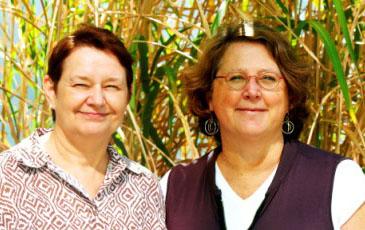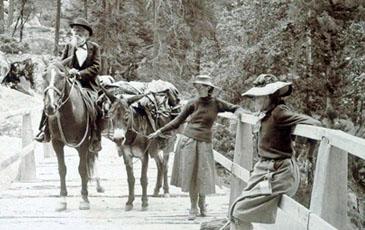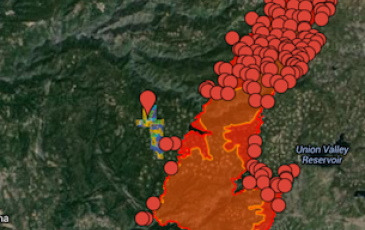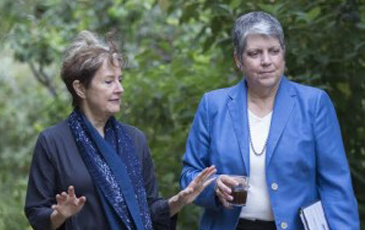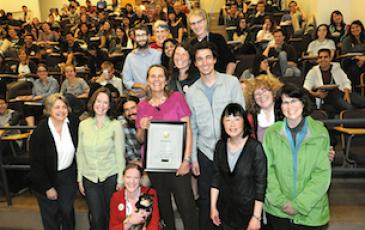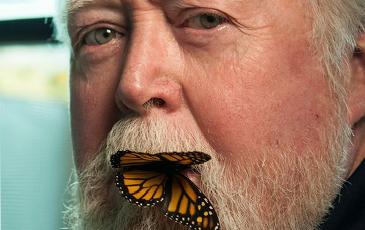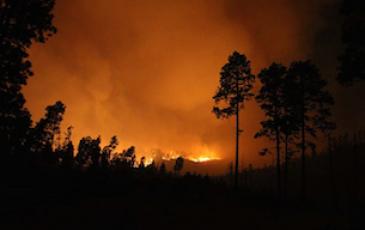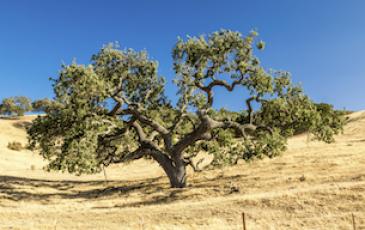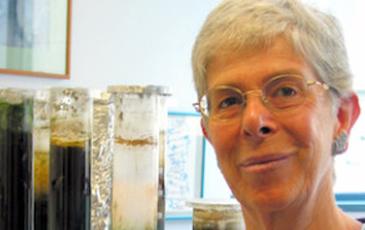Two UC Berkeley scientists will lead a team of international researchers to obtain genome sequences for 11 powdery mildew fungi, a key step forward in managing a pesky pathogen that causes billions of dollars in agricultural losses each year if left untreated.
Grapefruit juice may help stem weight gain, lower glucose and insulin levels
Mice fed a high-fat diet gained less weight compared to control groups.
New USAID Pact Brings $10K Fellowships to Berkeley Grad Students
UC Berkeley is launching a three-year cooperative agreement with the USAID-run Global Development Lab to provide Berkeley graduate students with access to exclusive, funded summer fellowships.
Berkeley and the Making of Yosemite
Yosemite National Park would be something quite different were it not for UC Berkeley.
Key research forest imperiled by King Fire
Blodgett Research Forest, a key UC Berkeley research station, is home to scores of UC Berkeley investigations on trees, plants, wildlife, insects, and wildfire management.
Biologists try to save world's rarest fish
Scientists estimate that fewer than 100 Devils Hole pupfish remain in their Mojave Desert home, but ESPM conservation biologist Steve Beissinger is guiding a captive breeding program.
CRS junior wins fellowship from World Food Prize
Nicole Wong, a Conservation and Resource Studies major starting her junior year, completed a prestigious World Food Prize fellowship this summer at the U.S. Department of Agriculture ARS Western Human Nutrition Research Center in Davis, California.
Faculty offer training on critical environmental issues
BERKELEY – With the environmental, social, and economic impacts of climate change at the forefront of the global dialogue, UC Berkeley is launching professional education programs for the public on these time-critical topics, starting with
Report checks health claims of popular sports, vitamin drinks
A new report by UC Berkeley researchers questions the health claims of popular energy, sports, tea and fruit drinks on the market.
Global wildlife decline driving slave labor and organized crime
BERKELEY – Global decline of wildlife populations is driving increases in violent conflicts, organized crime and child labor around the world, according to a policy paper led by researchers at the University of California, Berkeley.
Berkeley a big part of new UC initiative on global food needs
The University of California is launching an initiative to marshal resources across the UC campuses – including Berkeley’s 90 courses, 150 faculty and staff and multiple institutes and centers devoted to the study of agriculture and food – to address global challenges related to food.
GSI's Honor Huntsinger with Mentorship Award
The UC Berkeley Graduate Division's Faculty Award for Outstanding Mentorship of GSIs was presented to ESPM professor Lynn Huntsinger for providing GSIs with guidance and mentorship in teaching.
Study sheds light on how plants "put the brakes" on growth
A team of researchers led by the Quail Lab at UC Berkeley has zeroed in on the important process of “attenuation,” the way cells guard against potentially harmful overreactions to the external cues that enable them to adapt to prevailing condition
California sees big drop in wintertime fog needed by fruit and nut trees
California's winter tule fog - hated by drivers, but needed by fruit and nut trees - has declined dramatically over the past three decades, raising a red flag for the state's multibillion dollar agricultural industry, according to researchers at t
Top graduating senior makes a splash in water policy
Water and sanitation access warrior Rebecca Peters, 23, is this year’s winner of the University Medal, which goes to UC Berkeley’s top graduating senior. Peters is graduating with a double major in society and environment and interdisciplinary studies.
NRDC and Berkeley Food Institute Announce Winners of the 2014 Growing Green Awards
The Natural Resources Defense Council and the Berkeley Food Institute celebrate four remarkable leaders who are advancing sustainable food and agriculture at the sixth annual Growing Green Awards.
Inez Fung elected to AAAS
Inez Fung, a professor of environmental science, policy, and management, has been elected to the American Academy of Arts and Sciences (AAAS), it was announced last week.
New biomarker discovery can help scientists ID sudden oak death-susceptible trees
UC Berkeley and Ohio State University researchers have developed a way to predict the resistance or susceptibility of trees to sudden oak death disease, providing forest managers with the first effective method to manage trees in infested and adjoining natural areas and in adjoining areas.


